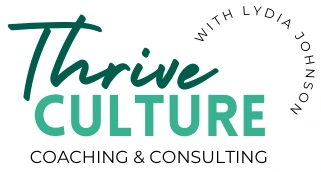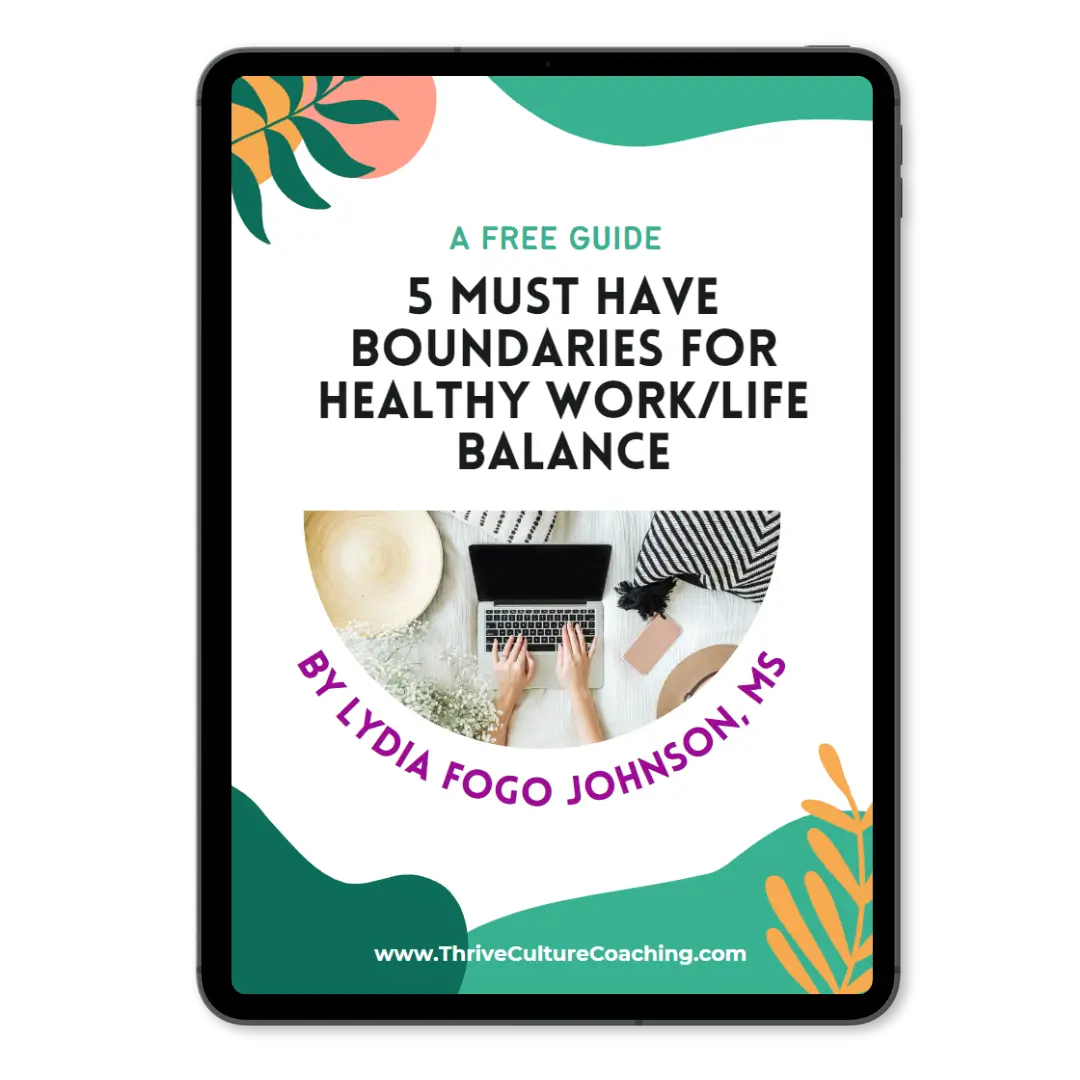Table of Contents
- What exactly are informational interviews, and why are they helpful?
- A Step-by-Step Guide to Informational Interviews
- Step 1: Decide you need informational interviews & clarify your goals
- Step 2: Prepare a list of questions for your informational interview
- What should you NOT ask during an informational interview?
- Step 3: Find people to talk to for informational interviews
- Step 4: Ask people to meet with you for an informational interview
- Here’s the right way to ask to meet:
- Step 4b: Tackle any anxiety and fear you’re experiencing about informational interviews
- Step 5: Thank them, Reflect and Repeat
When my career coaching clients are stuck in indecision about a big career or life change, I give them homework: Book informational interviews.
AKA, go talk to at least ten strangers and pick their brains about your situation.
Most of them respond with this look:

Photo by JESHOOTS.COM on Unsplash
But after they do it, they look more like this: ??????
But first, I have to clarify…
No, not just any stranger. Reach out to 10+ individuals, preferably those outside of your immediate network, who are doing the job (or life!) that you’re interested in or who have expertise in the topic you’re curious about.
The goal?
Ask your new connections to share their story in a short informational interview.
What exactly are informational interviews, and why are they helpful?
Informational interviews, also called prototype conversations or life design interviews, are short conversations dedicated to learning more about someone’s life, job, or experience.
The goal is to short-cut your own decision-making by “walking a mile in someone else’s shoes.” You’re trying to get insight into what a big change would feel like for you in a low-risk, low-effort way: A short conversation. You’re not trying to land a job, sell something, or do anything besides better understanding the unique experience of the person in front of you.
Prototyping the life design way is all about asking good questions, outing our hidden biases and assumptions, iterating rapidly, and creating momentum for a path we’d like to try out.
Prototypes should be designed to ask a question and get some data about something that you’re interested in. – Designing Your Life by Bill Burnett and Dave Evans
Informational interviews are helpful because human beings are social creatures, so one of the best ways we learn is through real-life interactions with other human beings.
Most of us (myself included) tend to buckle down and do endless Google searches when trying to make a big decision.
The thing is, google isn’t a person… and most people don’t take the time to deposit a treasure trove of unfiltered feedback about their wins and woes for strangers on the internet to read. (Except for me. Aren’t you glad I do that? ?)
But the surprising thing is that many people will talk to strangers on the internet if you ask them nicely for their advice.
The opportunity to pick someone’s brain for 20+ minutes and ask personalized questions is usually more useful than dozens of hours of Google searching.
You always walk away from these conversations with something new.
Sometimes, it’s an incredible new professional connection.
Or a game-changing insight clears the murk away from your career indecision.
It can even be an opportunity to apply for a job.
For example, I gave a job-searching client this assignment, and a few days later, she sent me this text:
“Had my first call with a creative director just to pick his brain today and he asked if I was looking for work! ?”
Whoot!! ???
Want free articles like this delivered straight to your inbox? Sign up for free today!
A Step-by-Step Guide to Informational Interviews
Step 1: Decide you need informational interviews & clarify your goals
The first step to anything is deciding you want/need/have to do it.
You probably could benefit from an informational interview if you…
- Are curious about a topic, job, or life path you know fairly little about.
- Are considering a change but feel like you don’t have enough information to make the decision.
- Know a lot of logical facts about the decision at hand, but can’t make up your mind about if it’s actually right for YOU personally.
- Are trying to break into a new space where you don’t know anyone.
- Feel stuck and unable to move forward.
- Tend to get bogged down in endless internet research without making much forward progress.
- Are worried you’ll second guess your decision.
- Like to get advice and many perspectives before moving forward.
- Have a unique situation you’re not able to get help with via general internet advice.
Wait, aren’t informational interviews just for college kids or interns?
Nope! informational interviews aren’t just for college kids or interns. Anyone at any stage of their career can leverage this powerful tool to help get new insights and streamline their decision making.
Now that you’ve decided to use this powerhouse tool start clarifying your goal.
What are you ultimately trying to learn more about or decide?
This big goal will guide who you reach out to and what you ask.
For example, perhaps you’re trying to decide if you want to get a new XYZ certification, if you’d really enjoy being a UX designer instead of a salesperson, or if you’d go insane if you moved your family across the country for that cool opportunity.
Step 2: Prepare a list of questions for your informational interview
I’d recommend making a short list before your informational interview so you can make the most of your time together and ensuring you ask three main types of questions:
What’s your day-to-day like?
Make sure you ask questions that get to the nitty gritty of what a day in the life is for this person. What do they love and hate about their job/life? What are their tasks? What type of person excels in this type of job/life? What is the impact of their stress, work/life balance, fulfillment, etc?
How’d you get here?
Ask questions that provide some insight into how this person got to where they are in their career (or life, if you’re prototyping big life changes). What were the challenges they faced? What were the big wins they experienced? What type of experiences helped them excel?
What advice do you have for someone like me who […]?
Questions that help you get some personalized insight into your particular situation. Key questions to consider include:
- Your personal values, e.g., “someone like me who wants to pivot into a xx job without losing my work/life balance”?
- Your personality, e.g., “someone like me who tends to be more introverted?”
- Your experience and/or current situation, e.g., “someone like me who has a background in [xx] but wants to pivot into what you do?”
Bonus Question: The Network Multipler
I always recommend wrapping up by asking something like… “This was so helpful. Do you have any other recommendations of people who I should connect with on this topic?” If they do, ask them for an introduction. BAM! Look, you just exponentially grew your network.
What should you NOT ask during an informational interview?
Do you want to hire me?
While prototyping conversations can sometimes lead to job interviews, do not be confused: These are NOT job interviews! You’re NOT bringing your resume, asking for work, or pitching yourself. Instead, you want to connect with the person on the phone and hear their story. You’re here to talk about THEM, not you! In fact, I’d recommend not mentioning interviews at all during this process so as not to confuse them; instead, it’s a casual conversation to learn more about their amazing career.
But what if they are hiring or there is a position I want to apply for on their team/company?!
If you are trying to learn about a specific company, team, or job posting, then you are NOT doing an informational interview! While it can be a brilliant strategy to reach out to someone to learn more about a specific opportunity, those conversations are an entirely different beast than the exploratory nature of an informational interview. Don’t get them confused!
Anything you should’ve asked Google
There is a time and a place for Internet research.
Do you want to know the average salary in the field, the basic requirements of a job title, or what the best graduate certification is for that field? Ask Google, not your interviewee.
Google is for anything factual, logistical, or general.
Interview conversations are about the felt human experience of living that life path or specific.
Ask your interviewee what skills they believe helped them excel, what their work/life balance is like, or what the best and worst part of their day is— you can’t find that in a Google search.
Step 3: Find people to talk to for informational interviews
I often ask my career coaching clients to reach out to 10-15 people outside their current professional networks with informational interview requests.
My homework for them is intentionally structured to include:
- A big number: 10-15 probably sounds like a lot of people, and that’s because it is. People are busy, and they don’t know you, so you’re going to have to play a game of numbers here. Ask enough people and you’ll definitely land a few conversations. If you ask one or two? No promises!
- People outside of their network: While it’s tempting to only talk to that person your great-aunt knows in the field you’re interested in, talking to people you know will only get you so far. If you use this to expand your network, you’ll increase the odds of good things happening, such as job offers or important new professional connections.
- Pro-tip for the job hunters: If you’re actively looking for a job, I may advise you to specifically reach out to people in leadership positions in the field you are interested in. Again, informational interviews ARE NOT job interviews!! But, if you’re going to meet new people, why not meet people who are more likely to be hiring now or in the future and know other leaders who are also looking for brilliant folks like you?
Great, you say! How the HECK am I supposed to find 15 people who will talk to me?
Well, there’s lots of ways to find people to talk to, like…
- Ask everyone you know if they know someone who [insert whatever type of person you’re looking for]. If they do, ask them to introduce you; a warm introduction will greatly increase your odds of them meeting with you.
- Searching via the internet for people in your area of interest through sites like Google, Facebook, Instagram, podcasts, blogs, etc.
- Join interest groups, attend relevant events, etc. to meet people IRL. Look at sites like Eventbrite (for events), MeetUp (for groups), etc.
Don’t forget about LinkedIn!
LinkedIn is an especially good place to start for job or career related informational interview requests. Here’s how to leverage LinkedIn:
- LinkedIn search: LinkedIn is a great way to meet individuals with the job title you’re interested in, who talk about the topic you’re interested in (“people who talk about #blahblah”), posts that contain those keywords, and groups or events where people that you want to talk to hangout. Think of a few keywords and then to look at each of the sections that appear in your LinkedIn search. Join groups! Go to events! Meet people!
- How to send LinkedIn messages (the right way):
- If you have a paid account, you can send many personalized connection requests and messages to people you aren’t connected with yet.
- If you have a free LinkedIn account you can send a limited amount of personalized connection requests weekly. Emphasis on limited: The amount changes, but it’s safe to assume you’ll get no more than ten a week if that.
- Paid or free, don’t send naked connection requests!! It’s critical you include a carefully crafted connection message to increase the odds they accept your invite.
- There are two ways to send these requests with a note: I recommend first going to their full profile and clicking “more” next to “message” and “connect” to see if there is a “send a personalized connection request” button. If there is, use that.
- Otherwise, go ahead and hit “connect.” Afterward, a screen should pop up asking if you’d like to add a message to your request. The message has to be quite short, so focus on getting a connection instead of getting the interview scheduled off the bat.
Who should I NOT talk to for informational interviews?
Please don’t reach out to anyone who makes their living off of providing advice or consulting. For example, it’d be rude to book a free appointment with a coach or therapist if you’re not genuinely interested in working with them!
Make sure to keep in mind the size of this person’s audience as well. You’d be better off reaching out to an average Joe in a field than the leading foremost expert— Joe will probably respond and have more interest in meeting.
Want free articles like this delivered straight to your inbox? Sign up for free today!
Step 4: Ask people to meet with you for an informational interview
First, complements of spam-filled LinkedIn inbox, let me give you an example of what not to do:

Here’s why these don’t work:
- They’re vague and contextless: I have NO idea who these people are or why they’re reaching out to me. There are no personal details about them and nothing to make me feel like they actually want to talk to me specifically.
- I’m afraid they’re trying to sell me something: The fact that their job titles are all related to business coaching, VA services, or other fields where I am a potential ideal client of theirs doesn’t help!
- It’s spammy: It’s clear they’ve probably copied and pasted this message and sent it to dozens or hundreds of people.
Here’s the right way to ask to meet:
- Provide context to who you are: The first question they’ll ask is “who the hell is this person?” So, answer it with something short and sweet like, “Hi Ana, I’m a graphic designer considering pivoting into UX who is hoping to connect with others in the field.”
- Compliment them: We all like to hear nice things about ourselves. So, first, do your research via their profile. Did they have a great post recently? Did they just get promoted? Do they work at a cool company or have your dream job title? E.g., “I saw that you just completed the project on UX and color design— I found your point of view about why the stop light color scheme is terrible incredibly fascinating!”
- Bonus points: If you’re on a social media platform it never hurts to engage with their content first by commenting, sharing, etc.
- Say why you’re reaching out: Here’s where you get honest about your ask; there’s nothing to hide or feel weird about!
- If you are limited on the character count (i.e., a LinkedIn message request), it can be very simple, like: “I’m hoping to connect with more UX professionals so that I can learn more about the field and ultimately decide if this is the right direction for my own career.” Once you’re connected, you can message them and discuss from there. That first message is just to get your foot in the door.
- If you aren’t limited in space, go ahead and add your request, something like: “I’m hoping to learn more about the field of UX by talking with professionals that are already in the field. I’m very interested in the work you do and would love to learn more— Would you be open to grabbing a quick virtual coffee and sparing 20 minutes of your time for me to hear your ideas about how you got to where you are today and what advice you have for people considering joining the field?”
- Keep the commitment low: Ask for a short meeting— it’s a lot easier to say yes to a 20-minute chat with a stranger than a 1-hour one! You’ll be surprised at how often 20 minutes will grow into an hour when they realize you’re not a weirdo.
- Clarify the location: If you’re in the same town, it can be nice to meet in person… but it’s also more effort. When in doubt, lean towards virtual. If you hit it off, you can always meet up IRL later.
- Be a human: Yes, be professional… but remember, you want to connect with a human on a personal level. If you sound too much like a corporate robot, they’re going to think you either want a job or want them to hire you. Try to be authentic.
- Be very clear that you’re not another spam message: If I’m reaching out to someone on a platform like LinkedIn where they’re probably getting a ton of spam, sometimes I just lay it all out there with a promise that I’m not another spammy salesperson. I’ll say something like… “I know you probably get a ton of spam messages on here like I do, so I just want to be crystal clear: I promise I’m not trying to get hired by you or sell you anything! I’m simply wanting to glean a bit of insight from real people who are doing my dream job… like you!”
Step 4b: Tackle any anxiety and fear you’re experiencing about informational interviews
Maybe you’re thinking… won’t everyone just say no, and then I’ll feel silly… or worse?
Honestly, you’d be surprised at how many people are more than happy to talk to a stranger on the internet because of one key thing:
The average person’s favorite topic is… themselves!! And we spend over 80,000 hours working in our lifetime… but it’s pretty d*mn rare we get to spend an hour talking about what we do for work to someone genuinely interested in the mundane details of our work days. Many people feel flattered that someone is interested in learning more about them and their jobs.
If you’re worried about feeling silly during informational interviews…
Then consider this your opportunity to practice your failure immunity.
AKA— getting good at facing challenges, getting turned down, and keep on keeping on.
You can also practice one of my favorite coaching tools: Asking yourself what’s the worst that can REALLY happen.
Are you a fellow ADHDer or neurospicey friend who feels like this is an impossibly risky task?
If all of this sounds extra terrifying to you and you’re someone with a neurodivergent brain, then there’s a chance you’re someone who experiences Rejection Sensitive Dysphoria. I am NOT a medical provider or psychiatrist, so I can’t help you with that one, my friend, but I can gently prod you to learn about it and validate that your feelings are very, very real and that you are not alone.
Step 5: Thank them, Reflect and Repeat
After your conversation, make sure to send a follow-up thank you note reiterating your gratitude for their time and insights.
Then, do some stewing on everything you’ve learned. Keep a document of:
- Questions/topics you have answered
- Questions/topics you still need answers to or want additional input on
- What was particularly helpful/useful or NOT helpful/useful
Keep on conducting these interviews until you feel like you’ve gathered enough input to make an educated next move.
Did you find this helpful? Don’t forget to save this, share it with a friend who could also use free career advice, and subscribe for free so you never miss an update.




Share